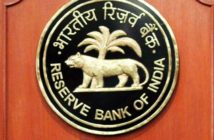The data on payment system indicators such as Paper Clearing, National Electronic Fund Transfer (NEFT) and National Automated Clearing House (NACH), registered growth in December, 2016 as compared to November 2016. However, the same showed a decline in January 2017 as compared to December 2016.
• Immediate Payment Service (IMPS), Unified Payment Interface (UPI) and Unstructured Supplementary Service Data (USSD) recorded a growth in January 2017 and December 2016 as compared to November 2016.
• Card transactions at Point of Sale (POS) registered growth in December 2016 as compared to November 2016. However, the same declined in January 2017 as compared to December, 2016.
• Pre-paid Payment Instrument (PPI) – considerable growth in January, 2017 and December, 2016 as compared to November, 2016.
In order to attract general public and facilitate significant behavioural change among public towards digital transactions NITI Aayog had launched two major schemes – Lucky Grahak Yojana for consumers and Digi-Dhan Vyapar Yojana for merchants. 12,72,290 consumers and 70,000 merchants have won prizes for digital payments made through AEPS, USSD, UPI and RuPay cards as on 22nd March 2017.
To incentivize the States/UTs for promotion of digital transactions, it was decided that Central assistance of Rs. 50 crore would be provided to the districts for undertaking Information, Education and Communication (IEC) activities to bring 5 crore Jan Dhan accounts to digital platform. The fund allocation is based on proportion of Jan Dhan accounts of all States/UTs. Under the scheme an incentive @ Rs. 10/- is provided for every individual who has transited to digital payment mode and undertaken at least two successful transactions by any of the five digital payments modes viz: UPI, Rupay / Debit / Credit / Prepaid Cards, AEPS, USSD and E-Wallets. NITI Aayog has so far released an amount of Rs 15.06 crore to 533 Districts as first installment.
In addition to above following measures were also taken to promote less cash payment :
• Unified Payment Interface (UPI) based Bharat Interface for Money (BHIM) App which supports remittance transactions both push and collect was launched.
• Approval has been given for introduction of revised architecture of Unified USSD (Unstructured Supplementary Service Data ) platform (*99#) USSD 2.0 version. This integrates UPI based transactions for USSD users through any type of handset.
• In principal approval has been accorded to National Payments Corporation of India (NPCI) for launch of pilot for the Aadhar Pay Payment mechanism, which will enable the merchant to accept payment from customers using their Aadhar number and biometric data to be authenticated by UIDAI.
• In-principle approval has been given for launching the National Electronic Toll Collection (NETC) system, which uses the Radio-Frequency Identification (RFID) tags for vehicle identification and toll calculation; the toll will be automatically deducted from the prepaid accounts linked with the respective RFID tag.
• In order to facilitate wider acceptance of card payments, the following special measures for debit card transactions (including for payments made to Government), has been introduced for a temporary period between January 1, 2017 and March 31, 2017 ;
i. For transactions upto ? 1000/-, MDR has been capped at 0.25% of the transaction value.
ii. For transactions above ? 1000/- and upto ? 2000/-, MDR has been capped at 0.5% of the transaction value.
With a view promote less- cash payments, the Reserve Bank of India has been releasing its Vision for Payment and Settlement Systems in India on its website since May 2005. The latest Vision document titled “Payment and Settlement Systems in India: Vision-2018” has been released on its website on June 23, 2016. The Vision-2018 aims at building best of class payment and settlement systems for a ‘less-cash’ India. The broad contours of Vision-2018 revolve around 5 Cs – coverage, convenience, confidence, convergence and cost. To achieve these, Vision-2018 will focus on four strategic initiatives such as responsive regulation, robust infrastructure, effective supervision and customer centricity.
This was stated by Shri Arjun Ram Meghwal, Minister of State in the Ministry of Finance in written reply to a question in Lok Sabha today.





